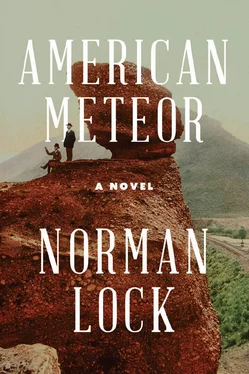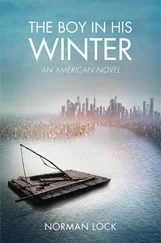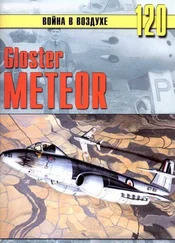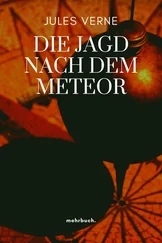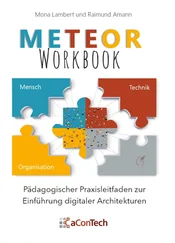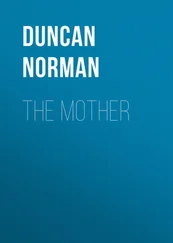“Some pictures make me restless,” I said after having temporized as long as I dared by fingering an earlobe and snuffling. The air inside the tent was pungent with chemicals.
“Restless?” His voice seemed to light up.
“The pictures I like do.”
“How so?”
“I can’t say. I feel a sort of anticipation. An eagerness comes over me that isn’t always pleasant. It’s hard to put into words.”
“Where do you feel it?”
“In my heart,” I replied, lying.
He spat contemptuously.
“I feel it here,” I said, touching myself.
Evidently, my answer pleased him. “I’ll be getting off the Omaha-bound train in Wyoming. Durant wants pictures of a miners’ camp for a railroad prospectus. At least, I persuaded him he does. It’s all right with him if you go along as my assistant. What do you think of the idea?”
I thought it glorious and told him as much.
“We’ll get off at Bear River City and pick up a string of mules for our equipment.”
I did not know how to thank him — what words to use without their sounding like a hurried grace said over a growling belly. Gratitude, sincerely meant, was foreign to my nature and experience. So I said nothing. I nodded and left him to the “stark forms of existence” that we’d hunt down one hard winter in Ute country. I stepped outside into night’s negative: The rails and the limestone hills and the tents shone silver with moonlight; the sky and the desert nothingness that spread around me were black. A meteor hissed across the darkness, an auspice of the American Empire and also a portent of its end. The meteor was only in my own mind; nonetheless, it made me shiver.
Bear River, Wyoming Territory, June 1869
Five mules and two equally taciturn drivers were waiting for us by the railroad grade across Bear River. The town had jumped up to accommodate railway workers, as well as the outgoing tide of emigrants traveling the Oregon and the Mormon trails. Bear River City, as it was called in recognition of a stagecoach hotel, hash house, depot, mining office, drinking, gambling, and whoring palace, and newspaper, came to an abrupt end in the riot of November 19, 1868, sparked by a vigilante lynching. A faction sympathetic to the lynched man hunted down the vigilantes, the jailhouse was stormed, plenty of men — good and bad — were killed, and the town was torched. By the time the army put down the insurrection, the town was dead. It was often that way for would-be towns from the Platte River to the Klondike. There was a violent, lawless strain in those who itched after gold or land or a loose and large manner of living. Doubtless, the germ has been inherited, according to the mysterious workings of genetics, by people who believe in doing as they please.
Miners and hunters continued to camp at the ruined town on their outbound journeys. For some people, outbound is the only direction they know, whether the journey leads across prairie grass, desert sand, polar ice, or seawater. I was the same — never stopping after I’d left Brooklyn till I fetched up in Lincoln, like a rolling stone or a shell beached by the tide. Things have voices to tell their stories; you’ve only to listen to a conch shell, the wind in tall grass, the humming of a telegraph wire in falling snow, or the throbbing of a railroad track. I imagine even stones complain of bad weather, old age, and ill treatment to anything with sense enough to listen. Well, I have the right to speak my piece, the same as any stone!
Jackson liked the desperate look of the place, though I saw nothing to recommend it but charred timber frames and rocks lying where they’d fallen after having done their work as walls.
“Tell me what you see, Moran,” he said while he coated a glass plate with collodion outside the darkroom tent.
I hadn’t begun to see in a landscape what a camera had the power to distill. If I took a good picture — one worth all the trouble of hauling the ponderous apparatus, heavy plates, and chemicals up mountains, across rivers, and through snowdrifts and of spending the better part of an hour to prepare the wet plate, expose the negative, and fix the image — it would be by accident. For a long while, that’s what it would be for me, who lacked the gift of someone like William H. Jackson. But by dint of patient repetition, I would learn, in time, to catch a little of the light that even the most stolid rock formation shed onto particles of silver. While I burned to be like him, I’d have to be satisfied with that “little.” As I said, I’d never be more than second-rate, though I flatter myself I was more able than most to get at the germ of the picture. At the start, however, I had ambition. That surprises you, doesn’t it, Jay? I aspired to be an adept like Jackson. In time, I’d come to realize my limitations.
“It’s places like this,” said Jackson, “where the eye can see plainly. “Put that one eye of yours to work, Moran, and tell me what you see in front of you.”
He tossed a dried apricot into his mouth and chewed.
“I see a pile of rocks, blackened joists and studs, a stand of trees, and, down in the ravine, the river.”
“Good,” he said, and left me to work out for myself what made them attractive.
He took three views that afternoon while the mules chewed grass and the skinners sat, unspeaking, on a log, passing a bottle of spirits back and forth. Later, they made up a fire and cooked the cornmeal and bacon mush favored by Johnny Rebs in the recent war, which had laid waste much of the old America. Raw emotions, undignified and unadorned by noble causes, had scorched this earth. Could I have articulated my thoughts, I’d have asked Jackson what he saw through his camera lens of the simmering passions of men, buried still in the ruins of Bear River City.
Instead, I asked, “What does Durant want with pictures of a wrecked town?”
“He doesn’t. I’m the one who wants them. Not everything’s for hire, Moran. Maybe what’s best in a man, he gives away.”
Jackson could be as mystifying as Ralph Waldo Emerson, and his riddles annoyed the hell out of someone like me, who thought things were already mysterious enough.
The next morning, we drove the mules eight miles up Bear River, following a trail along the ravine until it came down to a ramshackle mining camp. A yellow field of goldenrod lay, dazzling, on the narrow river’s opposite shore, as if to mock the lust for gold nuggets that had spurred two dozen or so men to rough it on the southwestern Wyoming plain. Standing in river water, they brought to mind Whitman, up to his knees in Sheepshead Bay. How many years ago was it? Nine. Nine years since I was a boy who had ventured no farther from his place in the world than Hell Gate or the Battery. In nine years, I’d gone south by steamboat, traipsed through Virginia, Maryland, and Pennsylvania, and ridden the rails from Washington City to Ogden, Utah. Now here I was, in a hardscrabble miners’ camp in what was called the Great American Desert (a desolation bearing no resemblance to the Sahara), without even the Union Pacific tracks to remind me of civilization.
I wondered what the sum of so variegated an experience might mean to what lay inside me, bullying like a sergeant major or coaxing like a woman used to getting her own way. Was there a germ, some indissoluble particle of being that could not be misled, tempted, or turned aside from the thing that made me different from a bug? I never thought much about the soul and, like most soldiers, considered virtue a seal put on young girls, destined to be broken by sweet talk or rough ardor. Virtue was a quality as useless in a man as tits on a hog. That’s not to say some of us didn’t believe in goodness. Only we called it “square dealing” or “being on the level.” When we said a man was “true,” we weren’t referring to an abhorrence of lies, but to an alignment with the common purpose or the common good (which is not the same as goodness, a quality possessed, or not, by an individual), as though a man — or a woman — were no more than a machine shaped and operating according to plan.
Читать дальше
